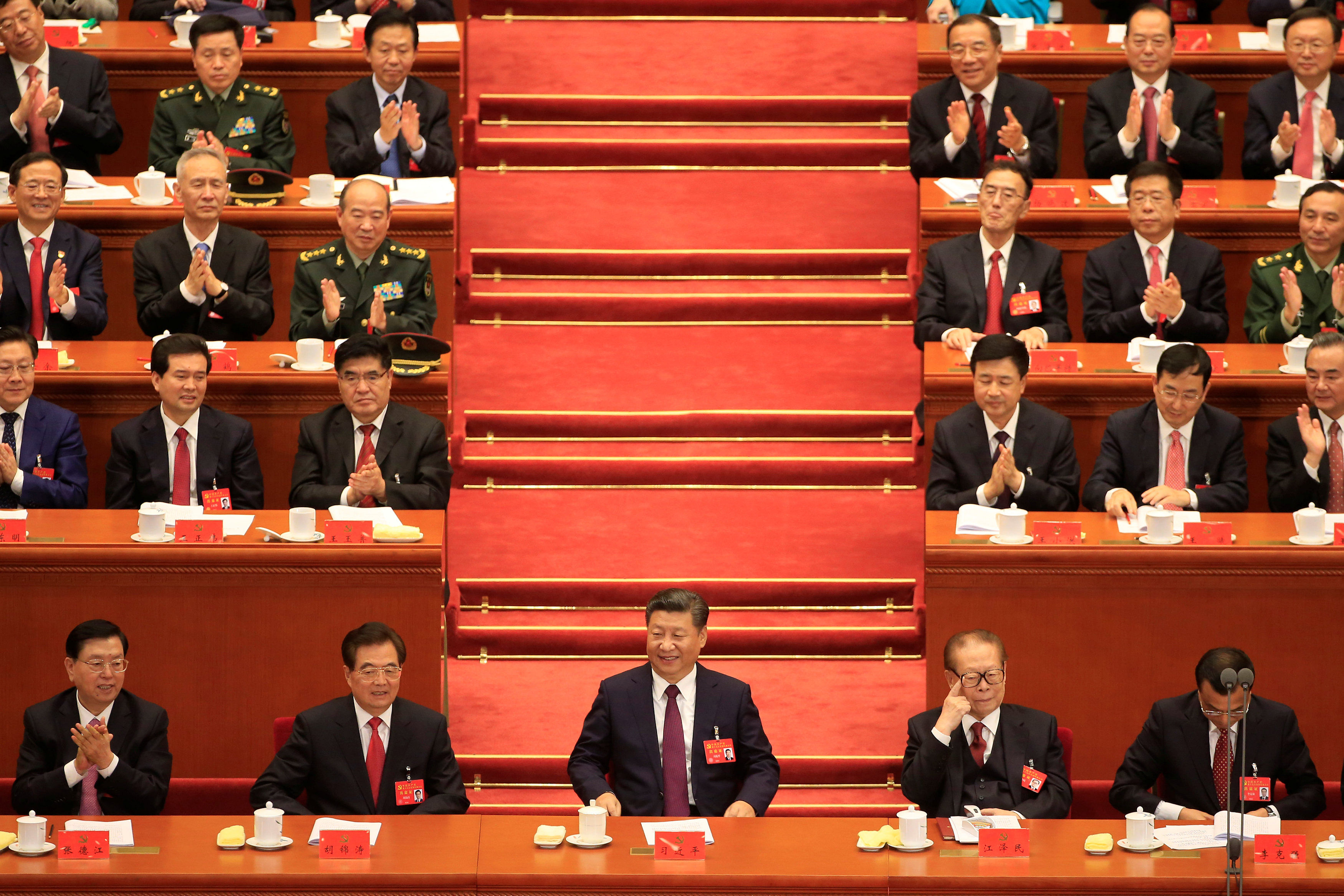China has made remarkable progress, but remains 'world's largest developing nation': President Xi
Sign up now: Get insights on Asia's fast-moving developments
BEIJING - Chinese President Xi Jinping said it has been a "remarkable five years" for China as it has made achievements in many areas, but the world's second largest economy remains the "largest developing country".
Delivering his closely watched work report at the start of the 19th Communist Party Congress, Mr Xi said China is now a major innovation country, with many technological breakthroughs, and its soft power has grown in the past five years.
The fight against graft, reduction of poverty and pollution, national security and strengthening of the Communist Party were also among the key achievements he highlighted in his work report.
China has blazed a new trail for other developing countries on how to achieve modernisation, he said.
Despite the progress in the past five years, Mr Xi cautioned that "we must be clear there are still many inadequacies in our work and many challenges ahead".
He said the country is still at the preliminary stage of socialism and China, the world's second-largest economy, remains "the world's largest developing nation".
In his address, Mr Xi also said China "resolutely opposes" any actions that undermine its leadership, or attempt to separate the country.
"We must do more to protect our people's interest and firmly oppose all moves that damage their interest or put distance between the party and the people," he said.

Mr Xi's speech is closely watched in China and overseas for signs of policy shifts.
Almost 2,300 delegates - elected from more than 89 million party members across China - are attending the week-long party congress at the Great Hall of the People.
The party congress is held every five years and this year's meeting is important as it is widely expected to cement the clout of Mr Xi, whose political ideas will be written into the party Constitution and will bear his name.
Mr Xi is almost certain to be confirmed for a second five-year term, but changes are afoot for the seven-man Politburo Standing Committee (PSC), the highest decision-making body in China.

The PSC currently has seven members, including Mr Xi and Premier Li Keqiang. Except for the president and the premier, the other five members will have to step down this year based on an unwritten retirement age of 68. This paves the way for Mr Xi to fill the positions with his allies.
There has been speculation that he might reduce the number of members so as to ensure that a majority of his allies are in the line-up and to avoid having to name successors-in-training to the team as has been the unwritten norm.
Observers believe he would like to keep Mr Wang Qishan, his anti-corruption czar and a trusted ally, on the PSC, possibly in an economic post given his vast experience in this area. But Mr Wang, at 69, is already past the unwritten retirement age, and media reports have said he wants to step down.
The PSC is selected from the 25-member Politburo, which will also see a big turnover of members as many of the current members are at or over the unwritten retirement age of 68.
THE PROCEEDINGS
During the week-long congress, the delegates will adopt amendments to the party charter and also elect a new Central Committee. The congress ends next Tuesday and on the following day, the Central Committee will elect the Politburo, the PSC and the new Central Commission for Discipline Inspection (CCDI), the party's anti-corruption watchdog.
But these elections are mere formalities as the new members would have been decided through horse-trading among various party factions, including at the yearly summer retreat at the Beidaihe beach resort in August.
New members of the PSC will meet the media after their election, likely next Wednesday. It will be a closely watched event as who makes it to the body would affect the direction of China for the next five years.
XI'S POLITICAL IDEAS
At the party congress, Mr Xi's political ideas will be written into the party Constitution and will bear his name, unlike those of his two predecessors.
At the close of the seventh plenum of the 18th Central Committee on Saturday (Oct 14), the committee issued a communique stressing the importance of "implementing general secretary Xi's series of important speeches, and new ideas and new strategies for governance" at the 19th CPC.
An amendment to the party Constitution was passed by the committee, the communique said, indicating that Mr Xi's political ideas will be added to the party's guiding ideology.
The congress will formally approve the charter amendment, confirming Mr Xi as China's strongest leader since Deng Xiaoping.
China's two presidents before Mr Xi - Mr Jiang Zemin and Mr Hu Jintao - had their contributions added to the CCP Constitution only after they stepped down from office. The rendering of their political ideas also did not carry their names.

"For Xi Jinping's name to be included in the Constitution will have huge symbolism," said analyst Hoo Tiang Boon of the S. Rajaratnam School of International Studies. "At the very least, it will represent that he has a higher stature than Jiang Zemin and Hu Jintao, and symbols matter a lot in a society like China."
"It would represent a further consolidation of his power," he added.


